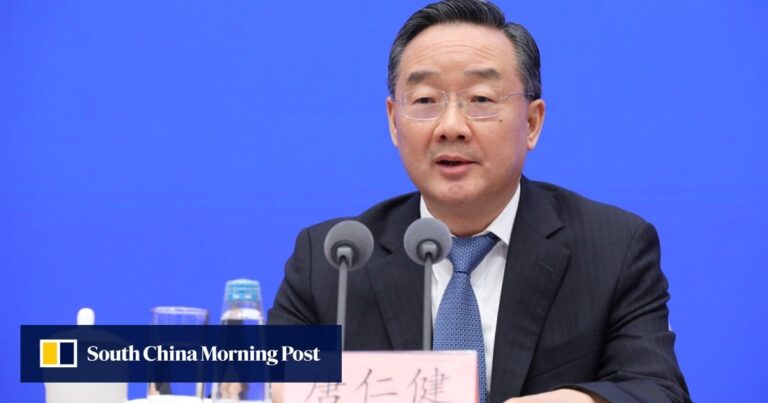China’s top corruption watchdog is investigating the country’s agriculture minister. The minister is the latest senior official to be investigated.
Tang’s last public appearance was just three days before the announcement, at a rural talent conference in Xianyang, northwestern Shaanxi province, where he inspected “innovation in the agricultural industry” and training for farmers. That was when I did it.
Tang hosted a meeting in April before the Party Central Inspection Work Guidance Group toured the Ministry of Agriculture and Rural Affairs, and said the ministry would respond “with the utmost care” to each issue raised by the group.
According to publicly available information, Tang is the 11th delegate to the Party National Congress to be held in October 2022, and the first member of the 20th Central Committee to be investigated.
Mr. Tang, 61, began his political career in the 1980s at the Ministry of Agriculture. He held various roles in the field before moving on to work in local governments such as Guangxi and Gansu Province.
He was appointed as Minister of Agriculture in December 2020.
The law aims to maintain the independence and control of the country’s “genetic resources,” the genetic material needed for plant cultivation. This covers the protection of intellectual property rights in the seed industry, including protective measures for the rights to new plant varieties and compensation for infringement.
Previously, Tang had staunchly supported this push. In January 2021, as a newly appointed minister, he announced a to-do list to improve the country’s crop production for the year, including increasing corn acreage and increasing self-sufficiency in edible soybeans.
The following month, China released its annual blueprint for rural policy amid Covid-19, with a focus on the use of new agricultural technologies.
At the time, Tang called for “raising the safety factor as much as possible and producing and storing as much grain as possible.”


.jpg?itok=t8OJmsoF)